War hero's lost medals replaced by Royal Navy
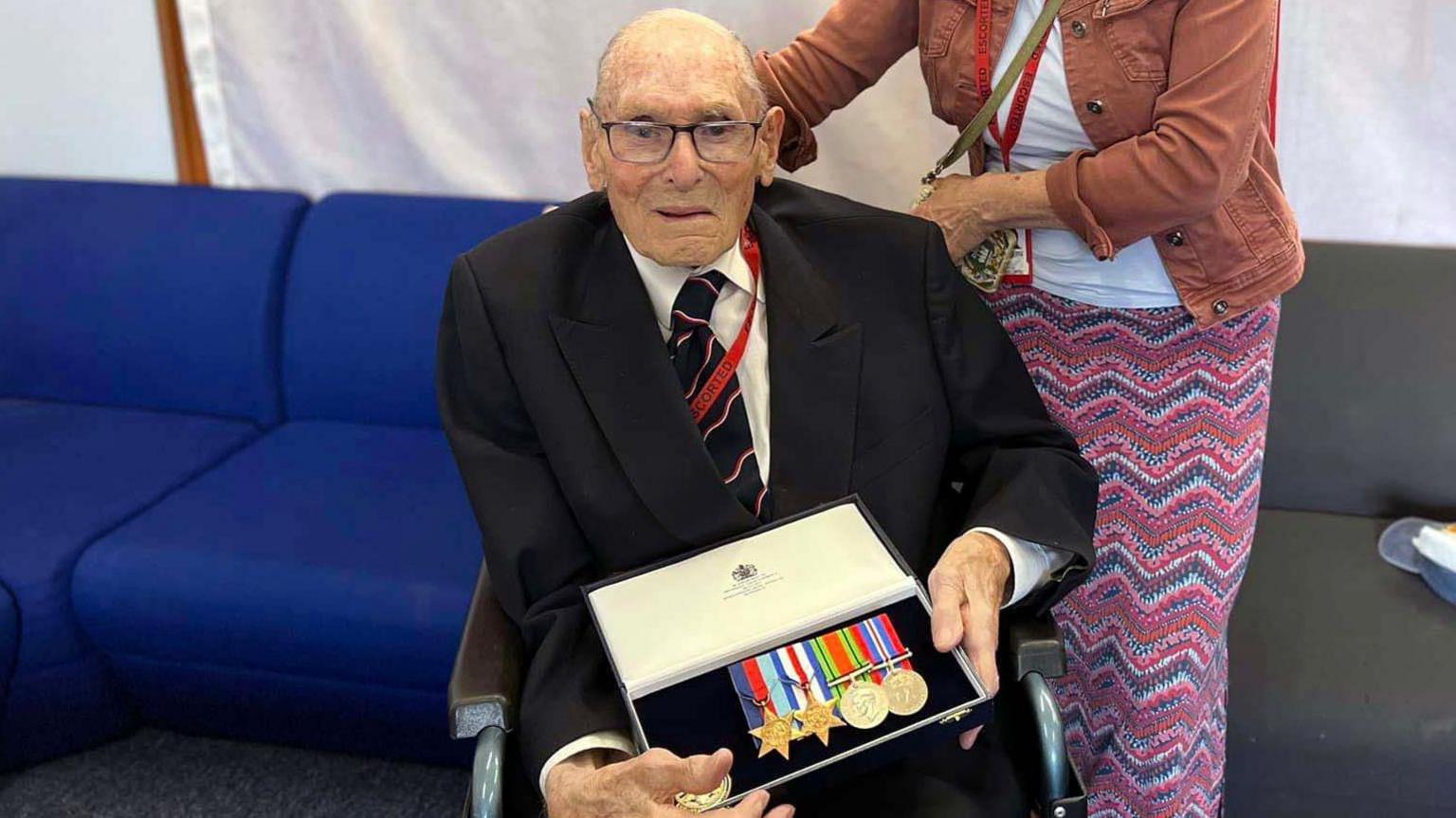
Boyd Salmon was described as a "genuine living hero" as he was given his replacement medals
- Published
A 100-year-old navy veteran who cleared unexploded bombs during World War Two has been awarded replacement medals after his original set was lost.
Boyd Salmon, from Lymington, Hampshire, is one of the last survivors of an elite unit who risked their lives to dispose of enemy mines and shells on British and European shores.
He joined the Royal Navy aged 17, later becoming a commissioned officer before his career was cut short in 1945 when he was wounded in an explosion.
His medals were misplaced by family members at some point over the ensuing decades.
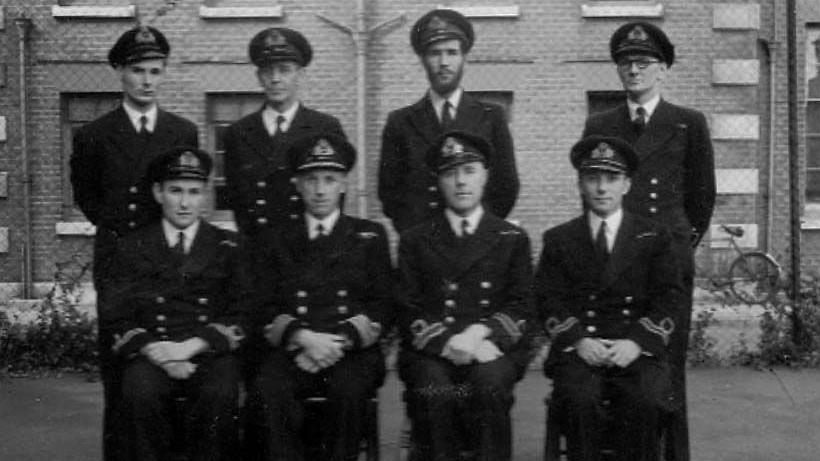
Mr Salmon (top left) is pictured alongside fellow members of the Royal Navy's Enemy Mining Section
This prompted the Royal Navy to offer Mr Salmon replicas, which were given to him during a ceremony at its Portsmouth base.
Commander Sean Heaton leads the successors of Mr Salmon's team, which is now called the Diving and Threat Exploitation Group.
He described the centenarian as a "genuine living hero" and said he was humbled to meet him.
Mr Salmon's service in World War Two came to an end when he and his team were attempting to clear an area of mines on a Dutch island that was blocking the Allied forces' route to Nazi Germany.
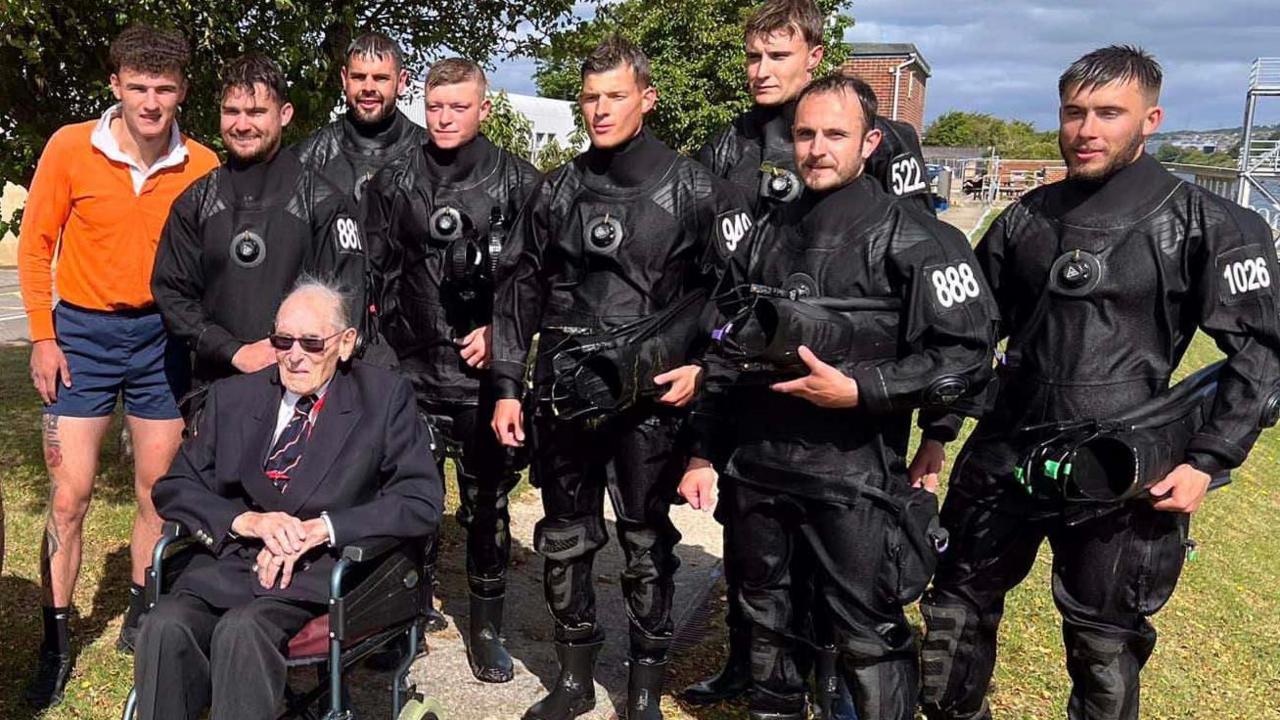
Mr Salmon met current Royal Navy divers in Portsmouth
As he neared a large unexploded bomb - carrying basic tools that were far removed from the technologically advanced kit used today - it detonated.
The explosion left him with severe injuries that resulted in years of treatment and recovery.
Mr Salmon told the divers at the ceremony he must have been "born lucky".
In a statement, the Royal Navy said: "All mine clearance and bomb disposal work is extremely hazardous, but the exploits of the Enemy Mining Section especially so - as they sought out the latest enemy devices and came up with ways of rendering them safe.
"In addition to that dangerous work, Boyd was sent to newly liberated north-west Europe to rid it of unexploded ordnance to both support the Allied drive east into the heart of Nazi Germany and allow normal life to resume."
Follow BBC South on Facebook, external, Twitter, external, or Instagram, external. Send your story ideas to south.newsonline@bbc.co.uk, external.
- Published24 June 2024
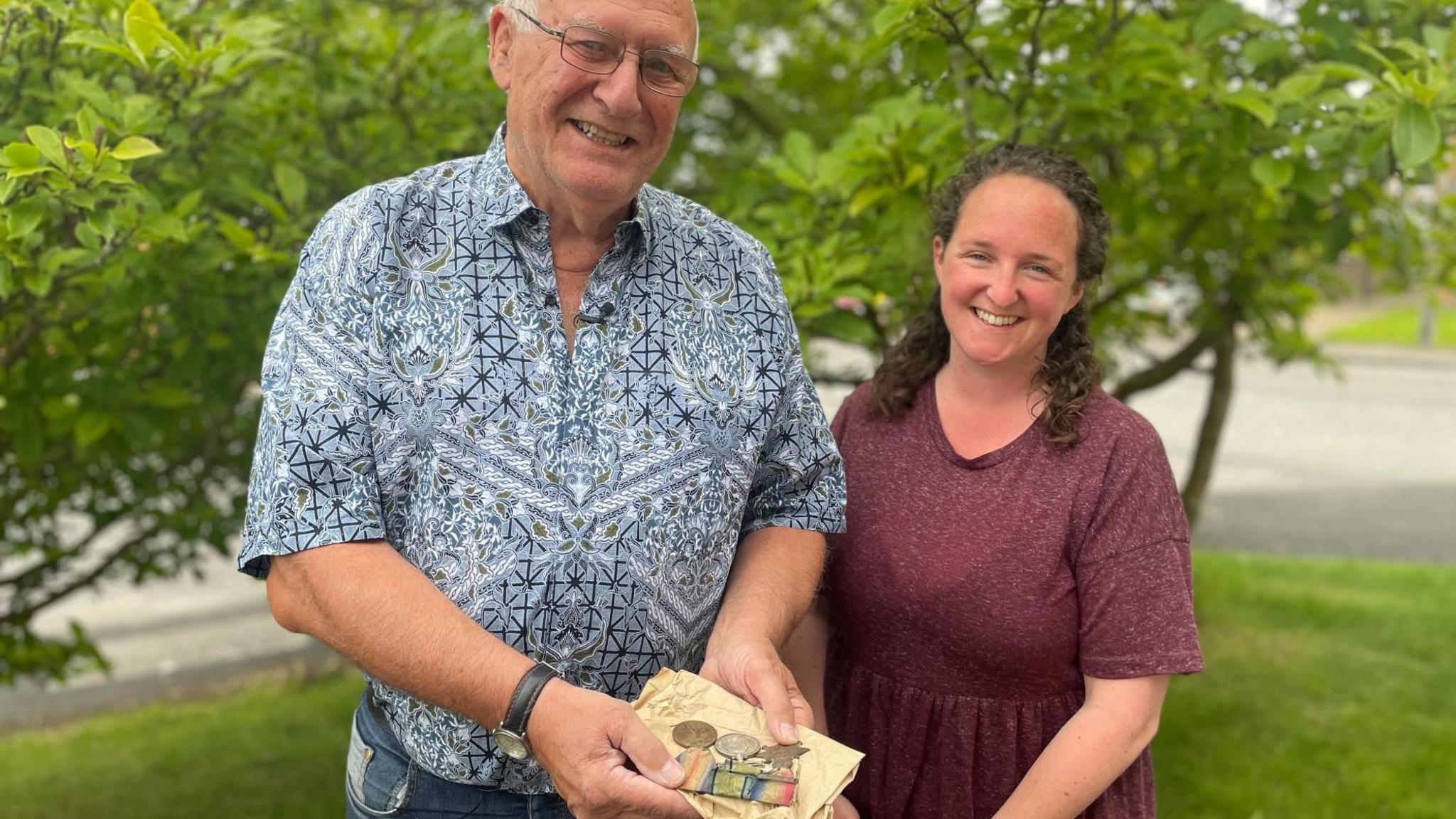
- Published9 November 2023
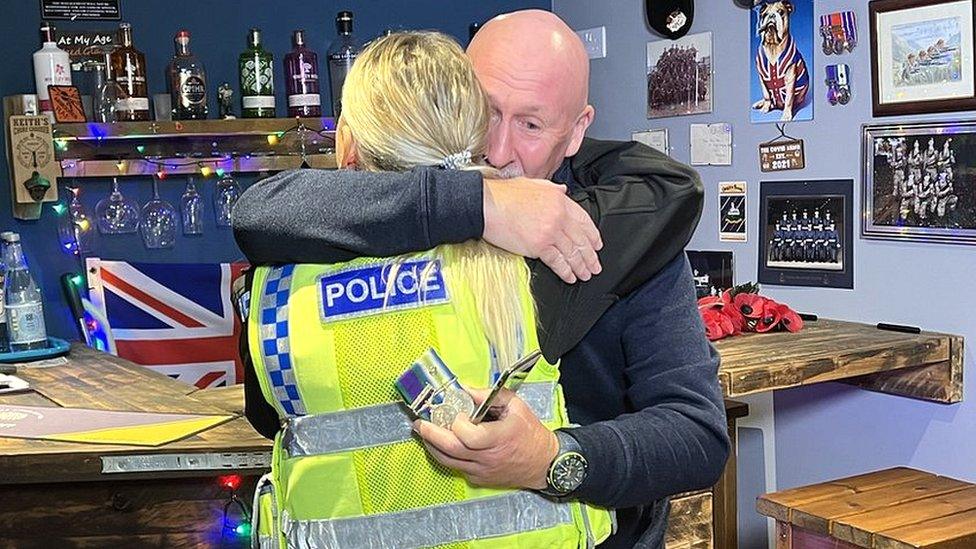
- Published14 January 2014